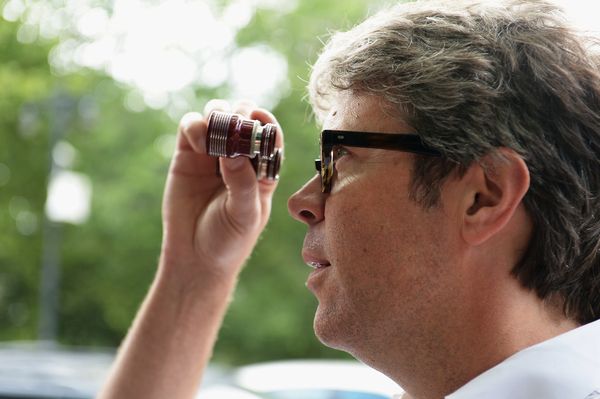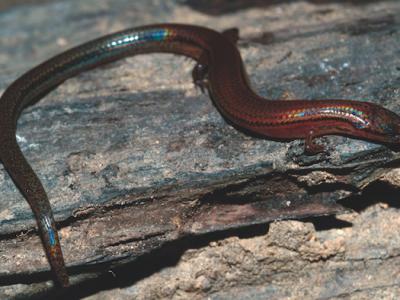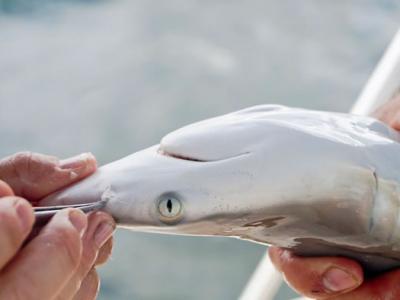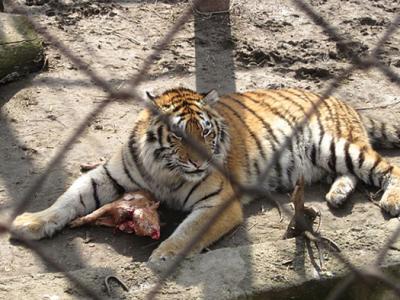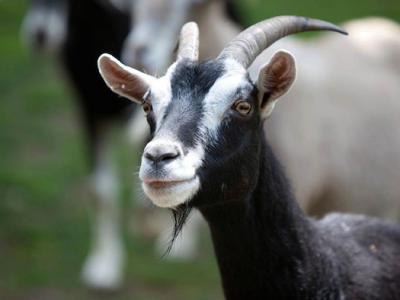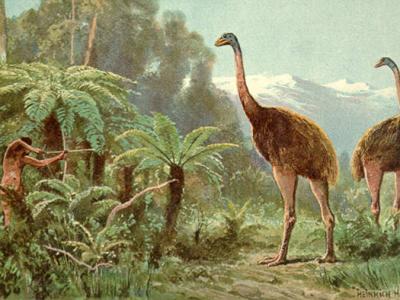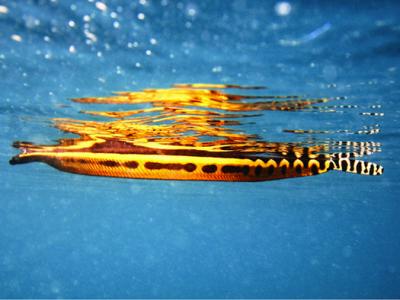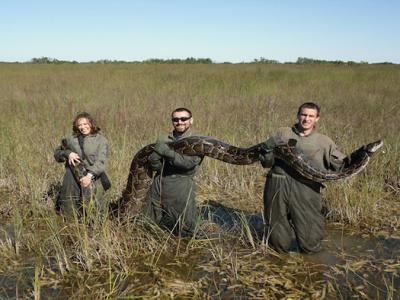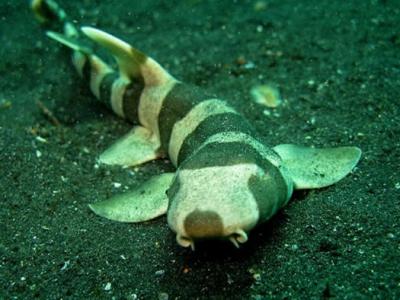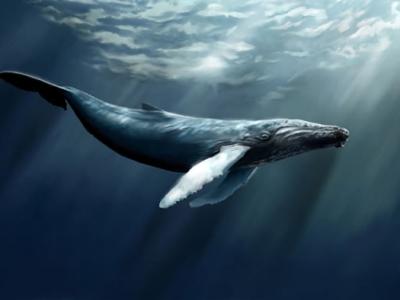Why Novelist Jonathan Franzen Loves Birds
Writer and bird enthusiast Jonathan Franzen spends his free time observing birds in their natural habitat.
Jonathan Franzen is one of those rare novelists to appear on the cover of Time Magazine. His 2001 novel, The Corrections, won a National Book Award, while his latest novel, Freedom, has been called "the novel of the century."
But birds and their conservation claim much of his attention. He encountered the joys of bird-watching more than a decade ago. Now, he says, "I'm making up for lost time and spending the second half of my life as a bird-watcher."
Franzen's love of birds has carried him into difficult territory, including sites of songbird slaughter along the Mediterranean, which he documented for National Geographic magazine's July issue.
Franzen recently spoke with National Geographic writer Rachel Hartigan Shea about how he fell in love with birds, and why he is still hopeful for their future.
Was there a gateway bird that opened the way to bird-watching for you?
There were several. Right after my mother died, I spent a lot of time looking at a northern flicker that was hanging around my brother's house in Seattle. Objectively it's a stunning bird, and it had so much personality. That was when I first started having a glimmer of why one might spend time doing nothing but watching a bird.
Around that same time I got to know a pair of California towhees in the backyard of my girlfriend's house in California. Most people would look at those birds and say, "Oh, they're just anonymous brown birds." But when you get your binoculars out and look at them closely, they turn out to have all these subtle markings, and the grace with which they comport themselves has its own deeper beauty.
But the real turning point came in Central Park [in New York City] during the spring migration. Some relatives who are bird-watchers took me out. I thought I knew the park, but there, right in the middle of crowds of people, was a bird I'd never seen before. My relatives pointed it out and said, "That is a veery." This lovely cinnamon-toned thrush was only there probably for the day. To see it there so unexpectedly opened my eyes to a different dimension of the world.
How much research do you have to do to know what kind of bird you are looking at?
Birding is an attractive pursuit because it doesn't take long to get pretty good. It's kind of like the acoustic guitar: If you apply yourself, within six or eight months you can play some songs. At this point, I've spent a lot of time looking at American birds and European birds. I still make mistakes, but you start to understand how birds interact with the landscape in particular habitats at particular times of year.
Do you find that you look at landscapes differently now?
My whole conception of what is beautiful has changed because I've come to love birds so much. I respond to landscapes that have birds in them, that are friendly to birds. A dismal swamp behind a rail yard now has a kind of beauty for me that a bird-free beach in the Mediterranean doesn't.
Love changes your idea of beauty inevitably. When you love a person, you are not thinking in terms of magazine beauty or newscaster good looks. A deeper kind of beauty comes into play. That is very much what happens when you begin to pay attention to birds and you begin to love them.
Had you been inclined toward outdoor activities before?
I grew up doing a fair amount of camping. I loved the American West, but at a certain point I didn't know what I was doing when I went out for a hike. I'd get to the top of a hill or little mountain and say, "Yeah, that's pretty" ... and take a picture. It just wasn't working. I began to feel upset about how the American West was getting overdeveloped. So I stopped going hiking for 10 years. Having something in nature to love and to look for was what changed everything for me.
Has birding changed how you think about environmental issues?
I realized that I didn't have to take on the entire problem of the environment—I could work in a more focused way for this category of animal that I have a real relationship with. You might not be able to save everything, but you can do a little bit to improve the situation for one species, or a suite of species that all use the same habitat. More birds will come back the next year if you've improved the area.
That has also attracted me to a certain kind of journalism. It's difficult to do environmental journalism, because it seems like the news is always bad. But birding has led me to a way to tell stories that are unusual and interesting for their own sake, and to offer at least a measure of hope.
When you are out in the field looking at birds, what gives you hope?
It was very striking going from Albania across the border into Montenegro. Albania has a terrible problem with unregulated hunting. There are these gorgeous wetlands—arguably the best wetland habitat in Europe—and almost no birds to see anywhere. We went over to the Montenegrin town of Ulcinj where there are these old salt pans that are wonderful habitat for migrating birds. There were tens of thousands of birds. Why? Because a Montenegrin NGO was paying a single guard to make sure people were not shooting in these wetlands. All it took was a few hundred dollars and one person's time. The birds will come back. They're very resilient. If the situation were to improve in Albania, if hunting stopped in the protected areas, for example, there is tremendous capacity for rapid rebound. So, yes, there is reason to have hope.
What is your most memorable birding moment?
In Albania, I looked up and saw a good-size raptor flying not far overhead. It was a rare Saker falcon. Then I realized that we were seeing it so well because it was being harassed by a Lanner falcon. These are two of the rarest falcons in all of Europe, and I'd never seen either of them before. They're actually a little bit hard to tell apart, unless you are looking at them right next to each other, which we were. Of course, it was a place where a lot of people were out with shotguns. They will shoot raptors there, so you kind of wanted the falcons to hurry up and move on to Bulgaria or wherever it was they were going.
Is there any similarity between hunting culture and birding culture?
Many of the things that make a good hunter—knowing the habitat, understanding the animal, knowing where to find the animal, being quiet, being very patient—those are all very important birding skills as well. As people wrap their minds around the unsustainability of certain forms of hunting, birding exists as a consolation.
When I was in Sicily some years ago reporting on bird hunting there, the woman who put a stop to the killing of raptors in Sicily told me the story of this terrible poacher whom she'd fought with, almost physically fought with, coming to her some years later wanting to talk to her. She said, "I don't want to talk to you; you're a horrible poacher." He said, "No, I've gotten into bird-watching and so has my son, and where I used to say, 'Do you have the gun in the car?' now I say, 'Do you have the binoculars?'"
There's a hunting instinct, yes, but a lot of hunters have a great, great appreciation for the things they are hunting. It's not that long a step from the culture of hunting to the culture of merely looking or shooting with a camera.
Rachel Hartigan Shea
National Geographic
Published June 17, 2013
